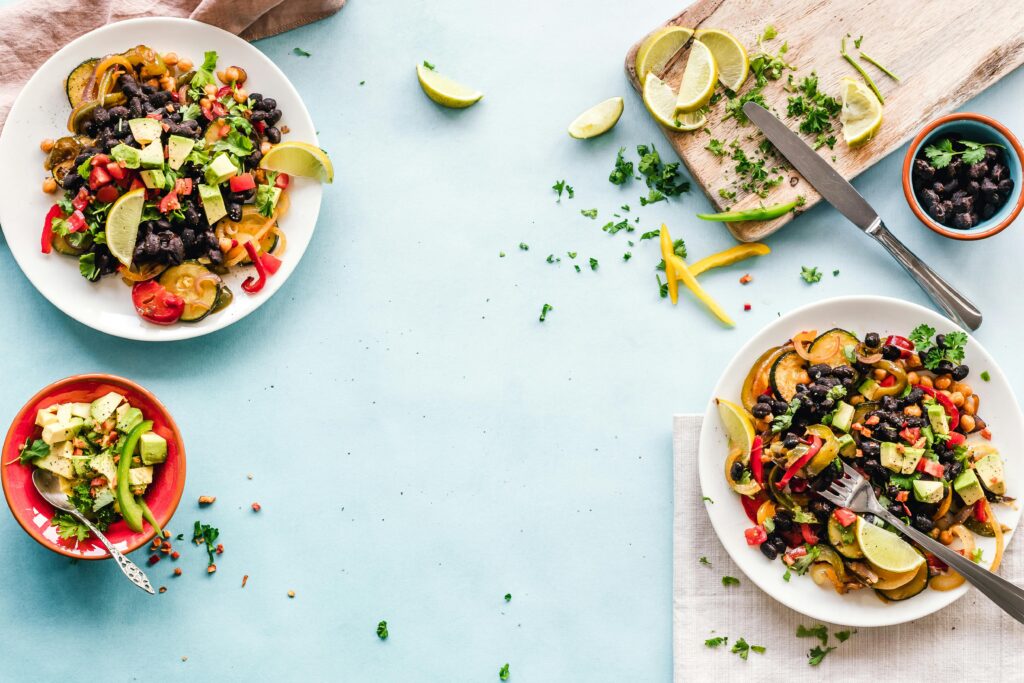Navigating the world of dieting can be a daunting task. With countless diet plans available, it’s hard to know which one is right for you, Enter the 1700 calorie diet plan. This diet plan is designed to help you manage your weight effectively.
But what exactly is a 1700 calorie diet plan? It’s a structured meal plan that limits your daily calorie intake to 1700 calories.
This diet plan is not just about calorie counting. It’s about making smart food choices that provide the nutrients your body needs.
The 1700 calorie diet plan is versatile. It can be tailored to fit your individual dietary needs and preferences.
This article will guide you through the process of creating an effective 1700 calorie diet meal plan. It will provide meal ideas, nutritional advice, and tips for success.
Whether you’re looking to lose weight, maintain your current weight, or simply learn more about nutrition, this guide is for you.
Let’s dive into the world of the 1700 calorie diet plan and discover how it can help you achieve your health goals.
Get Know: Creating a Balanced 1300 Calorie Meal Plan
Understanding the 1700 Calorie Diet Plan

The 1700 calorie diet plan offers a structured way to maintain calorie intake. It’s beneficial for those aiming to manage their weight. This plan requires a balance of the right nutrients within the daily 1700 calorie limit.
Understanding how to balance macronutrients is key. This ensures that your diet is not only about calorie restriction but also nutritional adequacy. You’ll need to carefully select proteins, fats, and carbohydrates.
Adhering to a 1700 calorie meal plan involves monitoring your portions. Portion control is vital to prevent overeating and ensure your meals fit within the calorie limit. Reading nutrition labels becomes second nature to track your intake effectively.
Creating a diverse meal plan can help maintain motivation and satisfaction. A variety of foods can provide all the essential nutrients your body needs. Striving for a colorful plate ensures you receive a wide range of vitamins and minerals.
Here’s a quick guide to follow:
- Balance proteins, carbohydrates, and fats.
- Focus on nutrient-rich foods.
- Monitor portions and calorie intake.
- Ensure variety and color on your plate.
- Read labels and plan meals carefully.
Who Should Follow a 1700 Calorie Diet Meal Plan?
The 1700 calorie diet meal plan is not one-size-fits-all. It suits individuals with specific goals like weight management. This plan can also be ideal for those with a sedentary lifestyle aiming to control their calorie intake efficiently.
Before starting this diet, it’s crucial to understand your personal calorie requirements. Consulting with a healthcare provider or nutritionist ensures that the diet is appropriate for your needs. A professional can provide insights tailored to your health goals and activity level.
Lastly, it’s important for individuals with specific dietary restrictions to adjust the diet accordingly. Whether you follow a vegetarian, vegan, or gluten-free lifestyle, your 1700 calorie diet can be tailored to meet these needs.
Get Know: How To Drop 15 lbs in 2 Weeks
Benefits of a 1700 Calorie Diet
Following a 1700 calorie diet can support steady weight loss. By controlling calorie intake, you can create a calorie deficit, leading to fat loss over time. This makes the diet particularly appealing for those seeking to lose weight methodically.
Another benefit is the focus on nutrient density. The diet encourages the consumption of foods that are rich in vitamins and minerals, rather than empty calories. This focus helps promote better overall health while staying within the calorie limits.
Moreover, maintaining a 1700 calorie meal plan can improve eating habits. With mindful planning, you learn to make informed food choices, which can lead to healthier, lifelong eating habits. This can significantly boost your understanding of nutrition and portion sizes.
Crafting Your 1700 Calorie Meal Plan
Creating an effective 1700 calorie diet meal plan involves understanding your nutritional needs. Each meal should contribute to overall health and energy. Planning helps balance meals throughout the day.
Start by defining your food preferences and dietary restrictions. This ensures your meal plan is both enjoyable and sustainable. Tailoring it to your tastes increases the likelihood of sticking to it.
Include a variety of food groups to avoid monotony and ensure nutrient diversity. This approach covers essential vitamins and minerals within calorie constraints. Think whole grains, lean proteins, and healthy fats.
Meal prepping can significantly streamline your diet adherence. Prepare meals in advance to reduce daily decision-making stress. Having balanced meals ready prevents last-minute unhealthy choices.
Calculating Your Calorie Needs
To effectively implement a 1700 calorie diet meal plan, understand your individual calorie requirements. These needs differ based on age, gender, weight, and activity level. Use online tools or consult a nutritionist for precise calculations.
Basal Metabolic Rate (BMR) is a crucial factor in determining calorie needs. It represents the energy your body requires at rest. Multiply your BMR by your activity level to gauge how many calories you need to maintain, lose, or gain weight.
Once you’ve determined your baseline, adjust to meet your goal with the 1700 calorie framework. Remember, the plan should align with your personal targets and lifestyle demands. Never reduce calories below what’s healthy for you.
Balancing Macronutrients
A successful 1700 calorie diet meal plan hinges on macronutrient balance. Consider the roles of proteins, fats, and carbohydrates in your meals. Strive for a harmonious mix to support energy levels and overall health.
Proteins are fundamental for muscle maintenance and satiety. Include lean sources such as chicken, fish, and legumes. They help keep you full and sustain muscle while losing fat.
Incorporate healthy fats and complex carbs for a balanced diet. Healthy fats like avocados and nuts contribute to heart health. Complex carbohydrates like whole grains provide steady energy, avoiding spikes in blood sugar. Balancing these three components is crucial for an effective and satisfying diet.
Sample 1700 Calorie Diet Meal Plan
A well-crafted 1700 calorie diet meal plan can make healthy eating straightforward. It provides clarity and removes guesswork from meal preparation. By planning meals ahead, you ensure that you meet your nutritional needs while maintaining portion control.
With thoughtful selection, you can enjoy a variety of flavors and textures. This plan includes filling meals and satisfying snacks. The key is balance and variety. Following such a plan helps you stay on track with your dietary goals without feeling deprived.
Breakfast Ideas
Starting your day with a nutritious breakfast sets a positive tone. A good breakfast includes proteins and fiber-rich foods to keep you full.
- Greek yogurt with berries and a sprinkle of granola
- Whole grain toast with avocado and poached egg
- Oatmeal with sliced almonds and banana
- Smoothie with spinach, banana, and protein powder
These options are nutrient-dense and easy to prepare. They boost energy levels and help you avoid mid-morning cravings.
Lunch Ideas
A balanced lunch fuels you through the afternoon. Incorporating lean proteins and complex carbs provides steady energy.
- Grilled chicken salad with mixed greens and vinaigrette
- Turkey and hummus wrap in a whole-grain tortilla
- Lentil soup with a side of whole grain bread
- Quinoa and roasted vegetable bowl with a drizzle of olive oil
These ideas mix variety and nutrition, keeping lunch exciting and fulfilling. Adjust portions to fit your calorie needs.
Dinner Ideas
Dinner should be satisfying yet light enough to promote good sleep. Focus on lean proteins and lots of vegetables.
- Baked salmon with steamed broccoli and quinoa
- Stir-fry shrimp with mixed vegetables and brown rice
- Grilled tofu with a side of sautéed kale and sweet potato
- Turkey meatballs with marinara sauce and zucchini noodles
These meals are colorful, flavorful, and easy to make. They provide a delicious end to your day while staying within your calorie budget.
Snack Ideas
Snacks can support your dietary goals when chosen wisely. Select options that fill nutrient gaps and curb hunger.
- Carrot sticks with hummus
- A handful of almonds or walnuts
- Apple slices with peanut butter
- Cottage cheese with pineapple chunks
These snacks offer quick energy boosts without excessive calories. They also provide valuable nutrients to support your overall health.
Tips for Success on a 1700 Calorie Diet
Adhering to a 1700 calorie diet requires careful planning and persistence. Set realistic goals and remain consistent. Success begins with small, manageable changes.
Meal prepping is a powerful tool. Planning ahead prevents poor choices and ensures nutritional balance. It saves time and effort during busy weeks.
Tracking your progress helps. Use mobile apps or journals to log meals. Monitoring intake reveals trends and keeps you accountable.
Get Know:How To Make Lemon Balm Tea For Weight Loss
Portion Control and Meal Timing
Portion control is crucial in a calorie-restricted diet. Use measuring cups or food scales to ensure accuracy. Mindful portion sizes prevent overeating and help maintain balance.
Consistent meal times support metabolic health. Eating at regular intervals stabilizes blood sugar levels. It also helps manage hunger, reducing the temptation to snack excessively.
Staying Hydrated and Mindful Eating
Hydration plays a vital role in dieting. Aim for at least eight glasses of water daily. Staying hydrated curbs unnecessary snacking driven by thirst misinterpreted as hunger.
Practice mindful eating to enhance the dieting experience. Focus on your meals without distractions. Eating slowly aids digestion and allows you to savor flavors.
Incorporating Physical Activity
Physical activity complements your 1700 calorie diet. Aim for at least 150 minutes of moderate exercise weekly. This routine boosts metabolism and supports muscle maintenance.
Choose activities you enjoy, such as walking, cycling, or dancing. Enjoyment ensures long-term commitment and makes staying active less of a chore. Balance exercise with adequate nutrition for optimal health benefits.
Overcoming Challenges and Making Adjustments
Embarking on a 1700 calorie diet can present challenges. It’s normal to face hurdles along the way. Adapting to new eating habits may take time and patience.
Flexibility is key to success. Life is unpredictable, so adjust your plan when necessary. A rigid diet can lead to frustration and possible failure.
Listen to your body’s signals. Your energy levels or health conditions might require modifications. Always prioritize your well-being and make changes as needed.
Dealing with Hunger and Cravings
Managing hunger is a common concern on a calorie-restricted diet. Incorporating more high-fiber foods can help. Fiber-rich foods like fruits and vegetables provide bulk and satiety.
Cravings can derail your efforts if not addressed. Allow yourself occasional treats in moderation. Mindful indulgences prevent feelings of deprivation and maintain motivation.
Adjusting for Dietary Restrictions
Dietary restrictions can be incorporated into a 1700 calorie diet meal plan with careful planning. Whether vegetarian, vegan, or gluten-free, consider diverse food options.
Explore different sources of proteins and nutrients that fit your preferences. Adjust recipes to substitute allergens or avoid undesired ingredients. Always aim for a balanced and inclusive diet tailored to your needs.
Get Know: Effective Women Weight Loss Strategies
Conclusion and Next Steps
A 1700 calorie diet meal plan can be an effective tool for weight management and improved health. By being mindful of your food choices and balancing nutrients, this plan fits well into a healthy lifestyle.
1700 calories a day Start by setting realistic goals and celebrating small victories along the way. Use available resources like apps and support communities to track progress and stay motivated. Always consult a healthcare provider before making significant dietary changes, and remain flexible to adapt your plan as needed. Stay committed to the journey, and you will likely see positive results in the long run.

